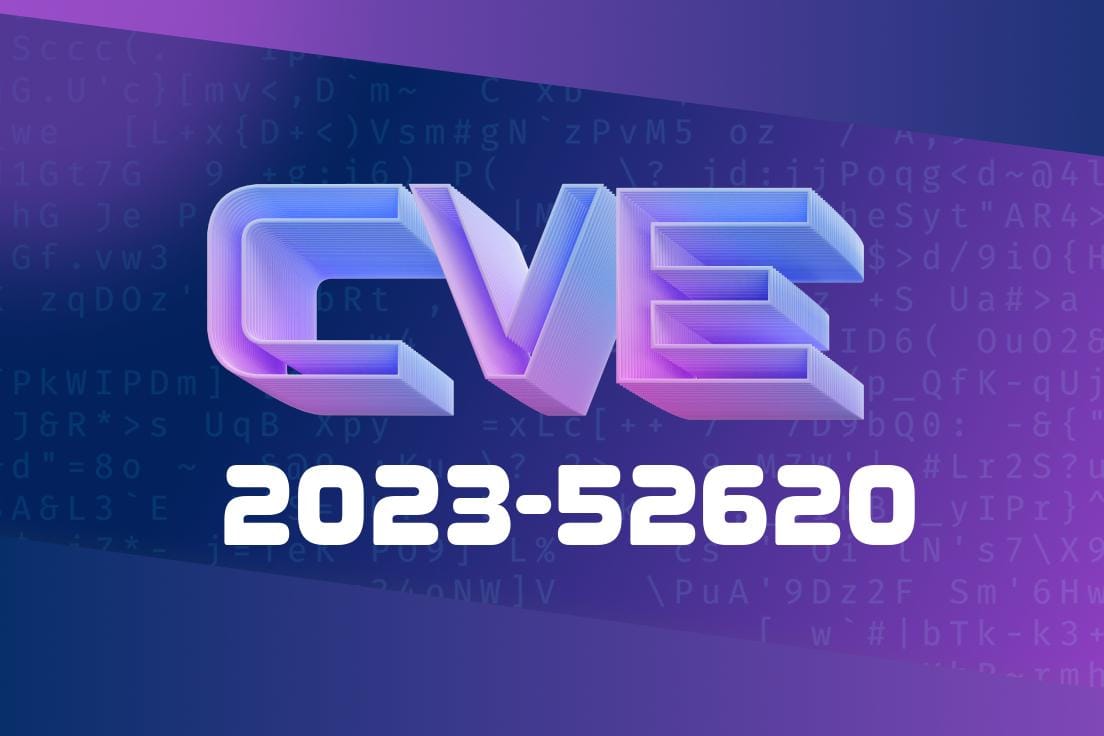---
Overview
In late 2023, security researchers identified a vulnerability in the Linux kernel's networking stack, tracked as CVE-2023-52620. This flaw resided within the nf_tables component, a crucial part of the Netfilter framework used for packet filtering and firewall rules. This article breaks down the vulnerability, its impact, the core code change, and resources for further reading—explained in practical, straightforward language.
What Is nf_tables?
The nf_tables subsystem is a modern alternative to classic iptables, giving Linux administrators powerful tools to manage network packet filtering, NAT, and other essential firewall functions. It's widely used in servers, routers, and embedded devices.
What Happened?
Anonymous sets in nf_tables allow for ad-hoc collections of values or rules without a stable handle or name. Under normal operation, timeouts are useful for named sets (so, items expire), but timeouts are never used from userspace with anonymous sets.
Prior to the patch, the kernel allowed specifying a timeout value for anonymous sets. This wasn't a feature intentionally available, and was not used by userspace, so it opened up undefined behavior—potentially enabling strange results, unexpected kernel states, or even misuse leading to denial of service.
Why Is It Dangerous?
Letting parameters be set that have no business being set can sometimes confuse the kernel, lead to use-after-free or memory corruption errors (though not directly exploit code here, it's a bad pattern—and that’s why it got patched quickly).
The Patch: Disallow Timeout for Anonymous Sets
Linux kernel maintainers quickly addressed the issue by rejecting any attempt to assign a timeout to an anonymous set from userspace. This closes the door on any accidental or intentional misuse.
Here's the critical code change (see original commit):
Code Diff (Patch)
--- a/net/netfilter/nf_tables_api.c
+++ b/net/netfilter/nf_tables_api.c
@@ -970,6 +970,11 @@ static int nf_tables_newset(struct sk_buff *skb, const struct nfnl_info *info,
if (desc->flags & NFNL_SET_ANONYMOUS) {
+ if (desc->timeout) {
+ NL_SET_ERR_MSG(extack,
+ "Timeout not allowed for anonymous sets");
+ return -EINVAL;
+ }
ret = nft_set_anon_addition(skb, info, desc, set);
if (ret < )
return ret;
}
Theoretical Abuse
Since userspace tools (like nftables CLI) never actually tried to use timeouts for anonymous sets, this bug doesn't have a direct public exploit so far. But a crafted netlink message from a privileged local process, specifying a timeout for an anonymous set, could:
Example Exploit Sketch (for illustration)
// Not a working exploit; shows how a malicious process could craft a netlink request
struct {
struct nfgenmsg nfg;
char buf[1024]; // build a bad anonymous set msg with timeout here
} request;
// Fill in netlink attributes manually with a timeout for anonymous set
// Send to kernel netlink socket with necessary caps (root needed!)
*Note: This requires root privileges, so it’s not a privilege escalation bug!*
Who’s Affected and How to Patch
- Linux distributions using kernels before the fix commit are vulnerable.
- The issue only affects userspace tools or custom code that would attempt this invalid usage, _primarily_ in test, development, or rare custom setups.
- Upgrade your kernel to a version after December 2023 or apply backported patches from your Linux vendor.
References and Further Reading
- Linux Kernel Commit Fixing the Issue
- CVE-2023-52620 at NVD
- nf_tables Documentation
Summary
CVE-2023-52620 reminds us that rejecting invalid or unused options is a crucial part of kernel hardening. Even obscure parameter combinations can become attack surfaces. The patch for this vulnerability is small but essential—preventing userspace from setting timeouts on anonymous sets in nf_tables, closing a minor but real hole in the kernel's networking stack.
Stay patched and always check your input validation!
*If you found this breakdown useful, bookmark and share to keep sysadmins and kernel hackers in-the-know about the latest CVEs!*
Timeline
Published on: 03/21/2024 11:15:28 UTC
Last modified on: 11/06/2024 20:35:08 UTC
